Wednesday, December 26, 2007
The Church in India
Indian Catholic Mass
Fanaticism and terror are not limited to fundamentalist/extremists groups representing the Peoples of the Book. True, Jews, Christians and Muslims have been creative and prolific over the centuries in showing the world how to kill in the name of a loving God. However, fanatics of all faiths have more in common with one another than they do with members of their own religion who attempt to follow a faith centered on love.
This holiday season illustrated how fanaticism and hatred is a world problem. In India, in the state of Orissa Hindu fundamentalists went on a destructive rampage. When they were done 13 Christian churches were set on fire, a Christian orphanage was vandalized, a police car was overturned, trains were stopped and 3 Christians were killed. All of this occurred on Christmas Day.
Services were interrupted. Many people were wounded and an additional three Christians are in critical condition.
The tension reflects centuries of conflict between the tiny Christian population in India and the much larger Hindu population. Christians make up less than 2% of the Indian population. However, in the state of Orissa there are 100,000 Christians and 650,000 Hindus.
The state has been the center of anti-Christian sentiment for a long time. In 1968 the state passed an anti-conversion law. In 1999 an Australian missionary and his two sons were murdered. Father Doss, a Catholic priest was also killed in 1999.
The fundamentalist do not only target Christians, they also attack Indian Muslims.
One of the complaints is that Christianity is a Western religion and the product of Colonialism. However, that simply does not fit the facts for the native Christian Church in India.
St. Thomas, one of the 12 apostles of Christ arrived in India in 52 C.E. That means that the early converts to Christianity predate most of European Christianity. St. Thomas established seven churches in India. He was martyred in 72 C.E. The Indian church was one of four Thomite churches of the east. The others included the Chaldean Church, the Edessan Church and the Persian Church.
The Indian church has had multiple influences. It was at one time subordinate to the Persian prelates. There was a time of native born bishops. Then the Chaldean Church dominated and Aramaic, the language of Jesus became the liturgical and business language of Indian Christians! During the 16th century the church came in contact with the Western churches and was infused with new traditions, liturgy and philosophy.
The church has had many transformations but can clearly trace its roots to its early beginnings with St. Thomas. Today the Syro-Malabar Church, in full communion with Rome, is the second largest Eastern Catholic.
So, back to the Christmas Day attacks. It is sad but not surprising that intolerance is part of the subcontinents tradition. Intolerance appears to be one of the shared traditions of the world. Clearly the fundamentalists are attacking fellow Indians with a proud Indian Christian tradition. The fundamentalists are not attacking Westerners or Colonialism. As in Iraq, the numbers are overwhelming. The Christians could not hope to achieve any type of success by fighting back. So now the hard part, to live a faith of love, to love one’s enemies.
The Christians in India like the Christians in Iraq, Syria and Turkey need to pray, that their Christian brothers and sisters around the world are not indifferent to the fate of the decedents of the early churches of the east.
Fanaticism and terror are not limited to fundamentalist/extremists groups representing the Peoples of the Book. True, Jews, Christians and Muslims have been creative and prolific over the centuries in showing the world how to kill in the name of a loving God. However, fanatics of all faiths have more in common with one another than they do with members of their own religion who attempt to follow a faith centered on love.
This holiday season illustrated how fanaticism and hatred is a world problem. In India, in the state of Orissa Hindu fundamentalists went on a destructive rampage. When they were done 13 Christian churches were set on fire, a Christian orphanage was vandalized, a police car was overturned, trains were stopped and 3 Christians were killed. All of this occurred on Christmas Day.
Services were interrupted. Many people were wounded and an additional three Christians are in critical condition.
The tension reflects centuries of conflict between the tiny Christian population in India and the much larger Hindu population. Christians make up less than 2% of the Indian population. However, in the state of Orissa there are 100,000 Christians and 650,000 Hindus.
The state has been the center of anti-Christian sentiment for a long time. In 1968 the state passed an anti-conversion law. In 1999 an Australian missionary and his two sons were murdered. Father Doss, a Catholic priest was also killed in 1999.
The fundamentalist do not only target Christians, they also attack Indian Muslims.
One of the complaints is that Christianity is a Western religion and the product of Colonialism. However, that simply does not fit the facts for the native Christian Church in India.
St. Thomas, one of the 12 apostles of Christ arrived in India in 52 C.E. That means that the early converts to Christianity predate most of European Christianity. St. Thomas established seven churches in India. He was martyred in 72 C.E. The Indian church was one of four Thomite churches of the east. The others included the Chaldean Church, the Edessan Church and the Persian Church.
The Indian church has had multiple influences. It was at one time subordinate to the Persian prelates. There was a time of native born bishops. Then the Chaldean Church dominated and Aramaic, the language of Jesus became the liturgical and business language of Indian Christians! During the 16th century the church came in contact with the Western churches and was infused with new traditions, liturgy and philosophy.
The church has had many transformations but can clearly trace its roots to its early beginnings with St. Thomas. Today the Syro-Malabar Church, in full communion with Rome, is the second largest Eastern Catholic.
So, back to the Christmas Day attacks. It is sad but not surprising that intolerance is part of the subcontinents tradition. Intolerance appears to be one of the shared traditions of the world. Clearly the fundamentalists are attacking fellow Indians with a proud Indian Christian tradition. The fundamentalists are not attacking Westerners or Colonialism. As in Iraq, the numbers are overwhelming. The Christians could not hope to achieve any type of success by fighting back. So now the hard part, to live a faith of love, to love one’s enemies.
The Christians in India like the Christians in Iraq, Syria and Turkey need to pray, that their Christian brothers and sisters around the world are not indifferent to the fate of the decedents of the early churches of the east.
Subscribe to:
Post Comments (Atom)




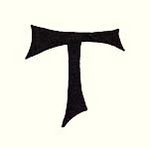
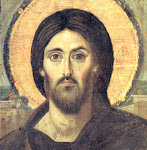

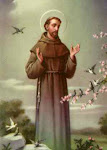
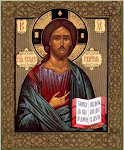

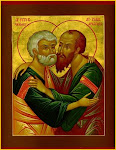


No comments:
Post a Comment